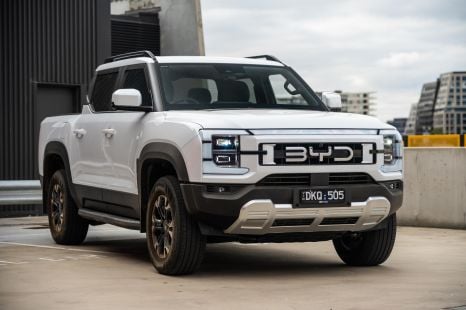

Max Davies
2025 BYD Shark 6 review
23 Days Ago
The Thunder Pro is the most capable BT-50 you can buy from a Mazda dealer, with much of the aftermarket work taken care of.
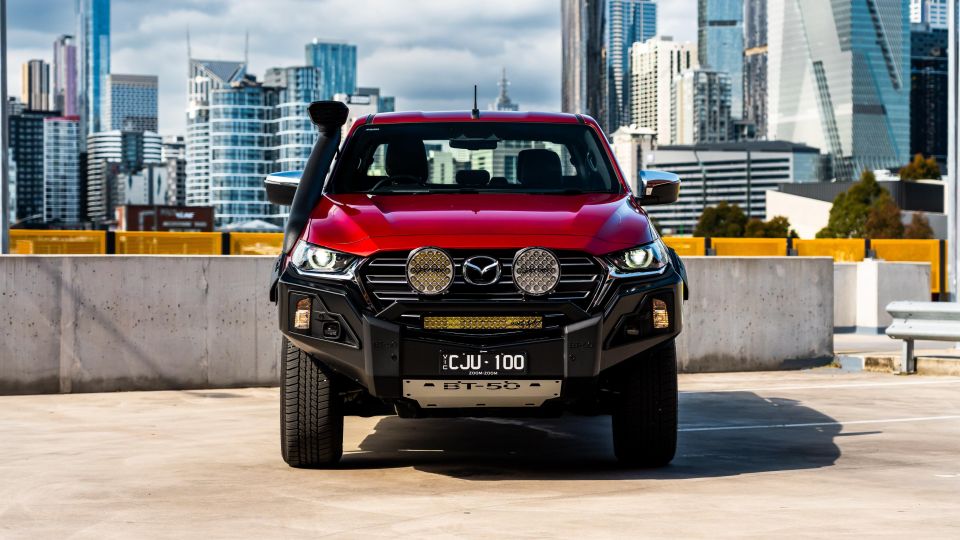
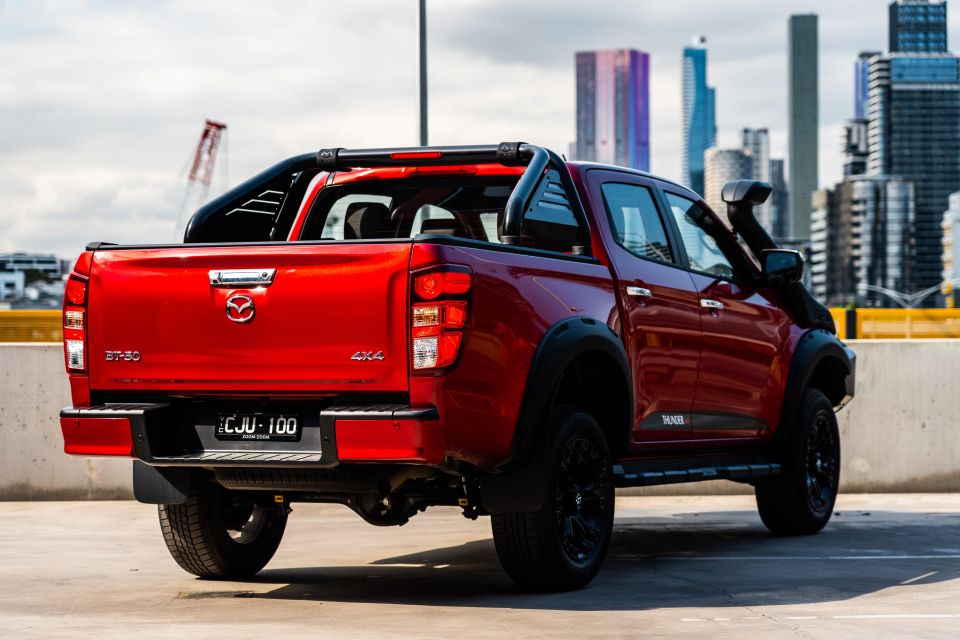

Quickly see how this car stacks up against its competition. Select any benchmark to see more details.
Where expert car reviews meet expert car buying – CarExpert gives you trusted advice, personalised service and real savings on your next new car.
For some people, there are few things better than modifying a new pickup through the aftermarket. It’s a vibrant, innovative sector that goes from strength-to-strength.
But for others, an off-the-shelf offering is a better fit. Something with more capability and comfort direct from the showroom floor, saving time and effort, and covered by a factory warranty when fitted from new.
Enter the BT-50 Thunder Pro which bolts on a claimed $9000 worth of aftermarket extras including Old Man Emu suspension, Lightforce LED driving lights and a snorkel.
It lines up against the similarly fettled Toyota HiLux GR Sport and Nissan Navara Pro-4X Warrior, while market leader Ford sells ARB accessories for the Ranger as part of its own enormous catalogue.
The BT-50’s mechanical twin and donor vehicle, the Isuzu D-Max, is not sold as a ready-to-go modified product like this Thunder Pro, but we should point out the company’s accessories catalogue is lengthy.
The BT-50 Thunder Pro is based on the BT-50 which costs $73,945 before on-road costs, or a bit over $75,000 drive-away at the time of writing. The Thunder Pro package adds $9046 on top of this.

Mazda BT-50 Thunder pricing:
Prices before on-road costs
To see how the Mazda BT-50 compares with its rivals, use our comparison tool.
Buy your new car without the stress. It's fast, simple and completely free.

Great service from Travis and team, second time I have used this business would not hesitate to recommend them to anyone
Craig C.
Purchased a Ford Ranger in Sunshine Coast, QLD
CarExpert helped Craig save $7,224 on his Ford Ranger, now let us save you on your next new car.
Get your BEST priceThe BT-50’s interior has some great attributes, not least its fantastic seats with heaps of side and thigh bolstering, heating and powered adjustments for the driver. They’re proper armchairs and best-in-class alongside the Isuzu version.
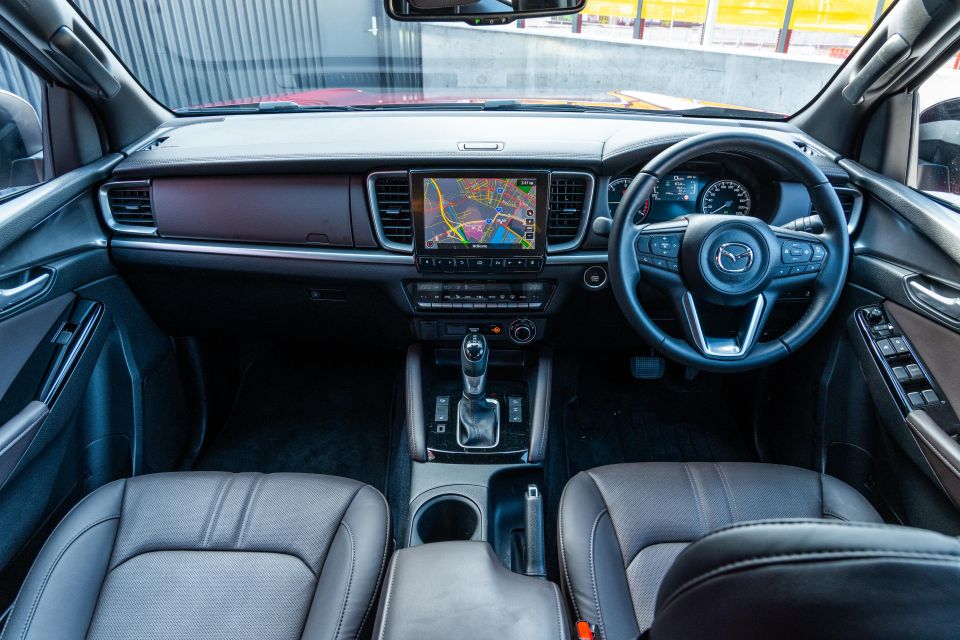
There are some small differences between this and the D-Max, by the way. Namely the trim colour, steering wheel design, the shape of the vents surrounding the touchscreen, and the knee padding on the centre tunnel.
On the Thunder Pro there are clear and simple audio controls and cruise control buttons on the steering wheel, which adjusts for rake and reach. The analogue dials flank a digital display with speedo and consumption readouts.
The wheel also has a button on the right spoke which, when pressed for three seconds, disengages the lane-keeping assist system that re-activates each time the vehicle is turned on.
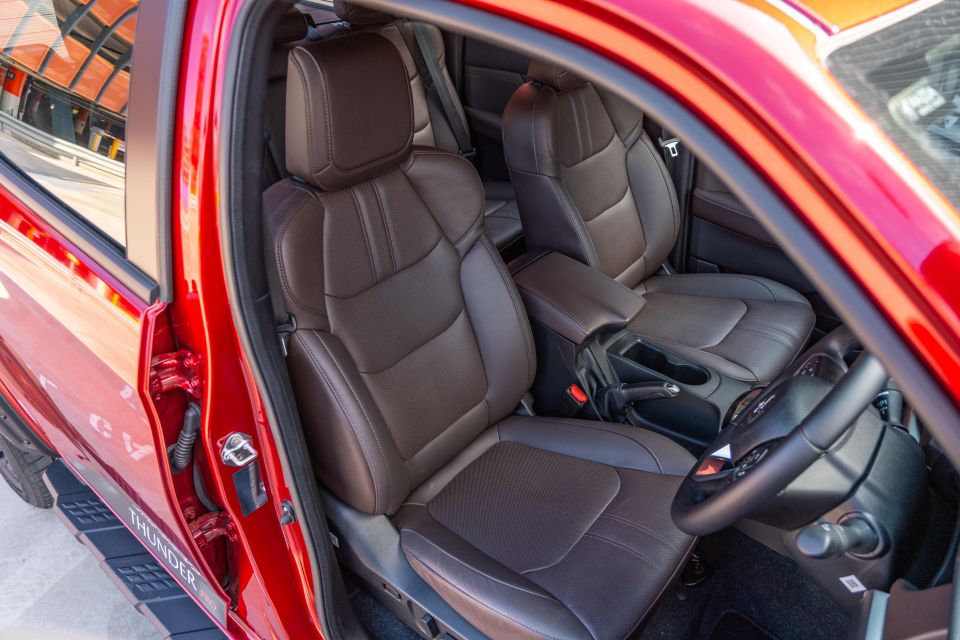
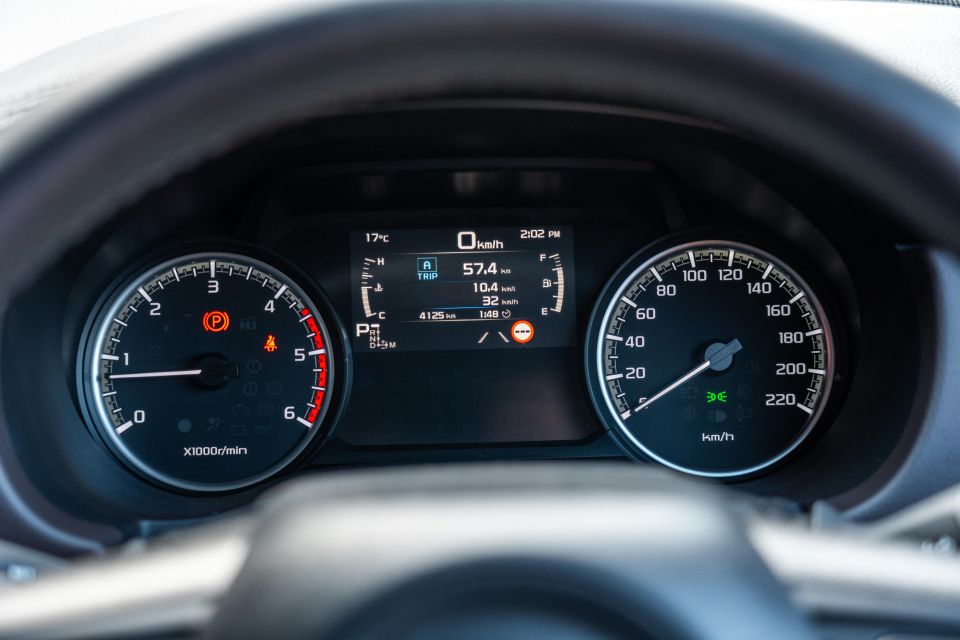
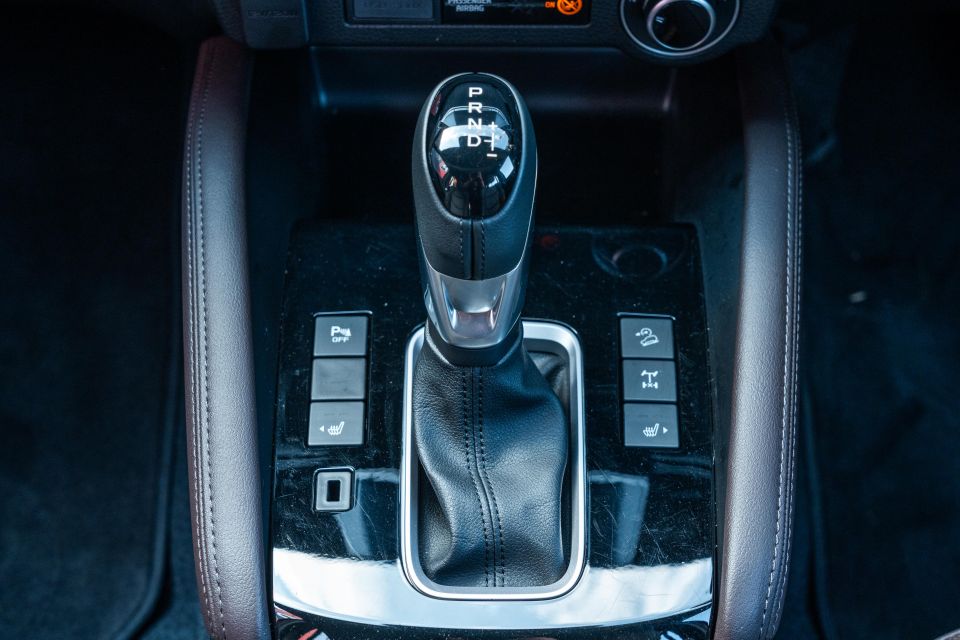
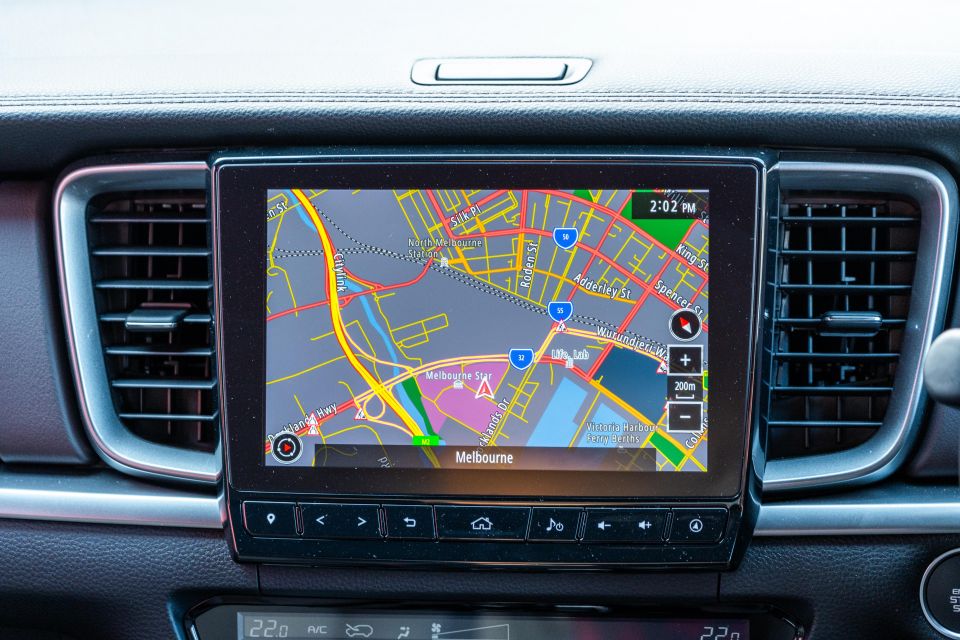
The 9.0-inch centre touchscreen is now outclassed by the Ford Ranger’s huge portrait-oriented display, looking aftermarket and being comparatively slow to process inputs.
Fortunately it has Apple CarPlay and Android Auto, a decent sound system, and a brash native sat-nav system. I’d like to see a surround-view camera introduced at update time though.
A series of switches below handle climate controls, and below these sits a dial to engage 4H and 4Lo. Alongside the gear shifter are buttons to engage the locking rear diff, turn on the seat heaters and use downhill assist control.
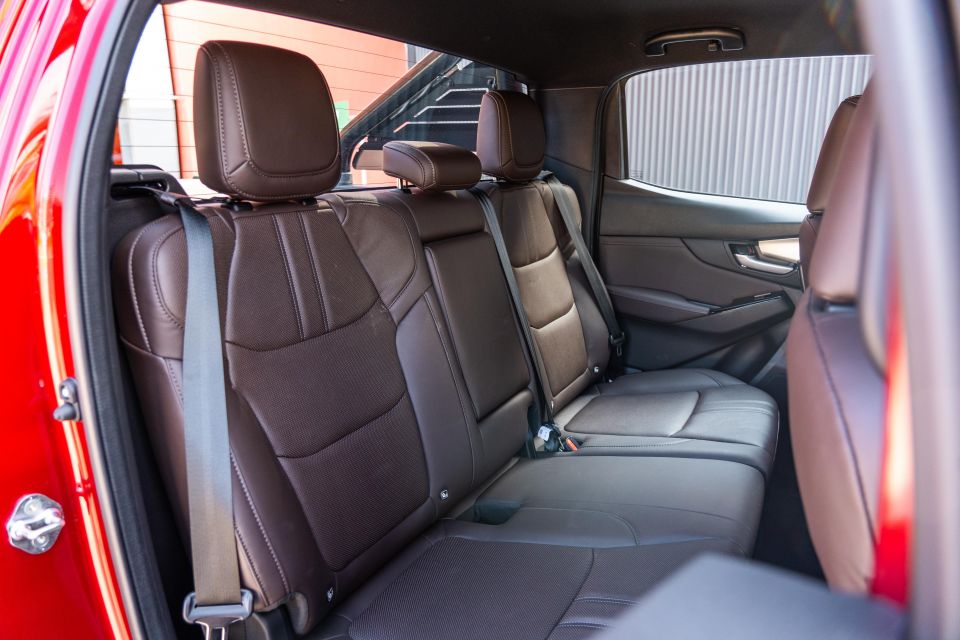
There’s a decent amount of storage including dual gloveboxes, however, Mazda’s designers strangely deleted the D-Max’s handy outboard cupholders mounted in the outer extremes of the dash, and the closing cubby atop it.
There are some rather premium leather trims and padded touchpoints interspersed with much more hard-to-the-touch surfaces. Build quality is decent, but there are some cheaper-feeling bits including dust- and scratch-prone glossy black inserts.
The back seats are beautifully trimmed like the fronts, and offer a pull-down centre armrest with cupholders, rear vents, and a USB. There is sufficient headroom and legroom for two adults (I’m 194cm and could get comfortable) as well as the requisite child-seat attachment points and side curtain airbags.
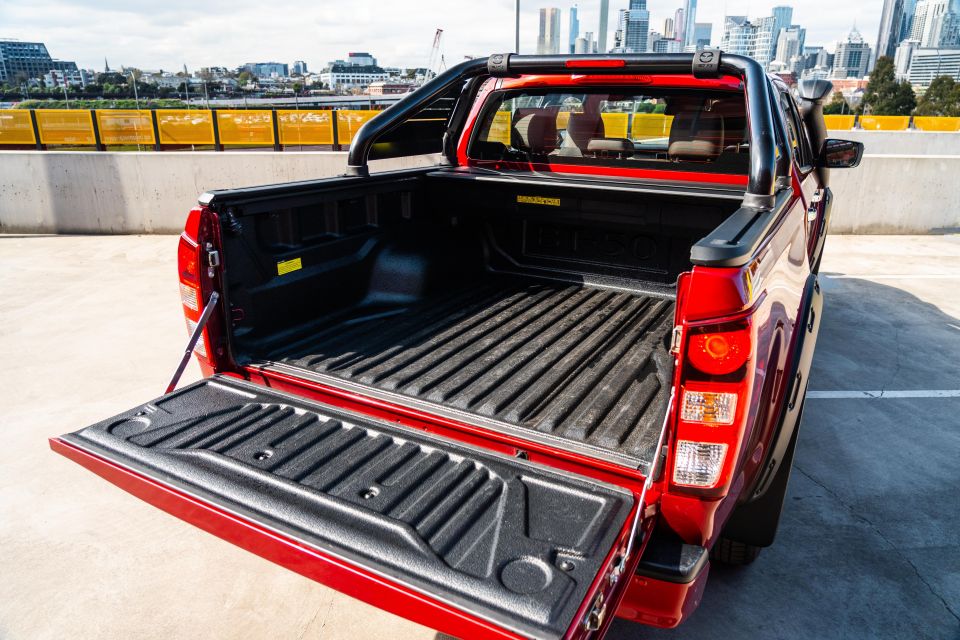
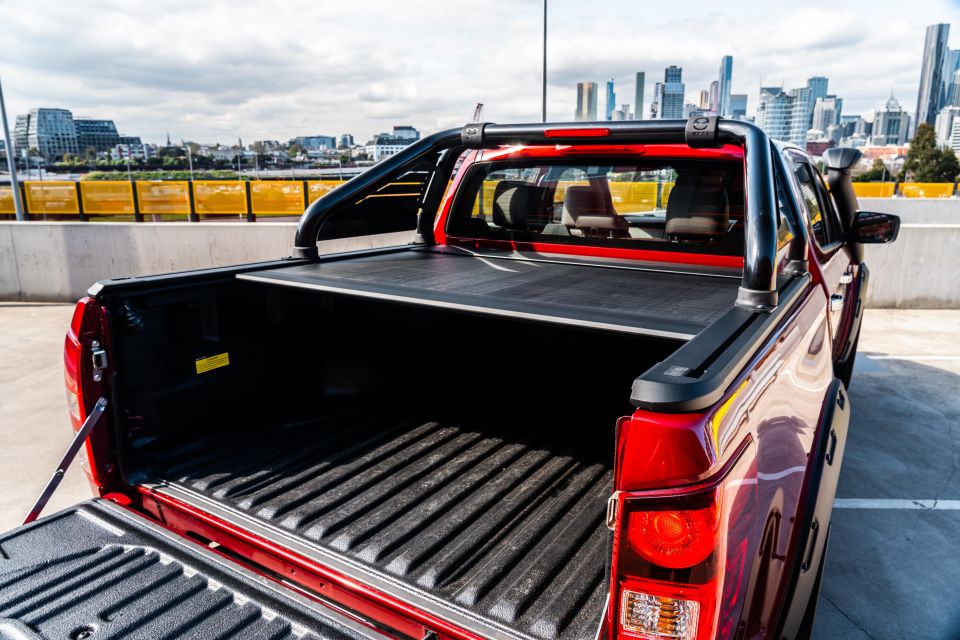
The tub comes with a solid, high quality liner and a powered roller-shutter tonneau cover, which improves security but reduces storage space at the front of the tray.
The same Isuzu 3.0-litre four-cylinder turbo-diesel as the rest of the BT-50 range, producing 140kW of power at 3600rpm and 450Nm of torque at 1600rpm, mated to a six-speed automatic with part-time 4×4.
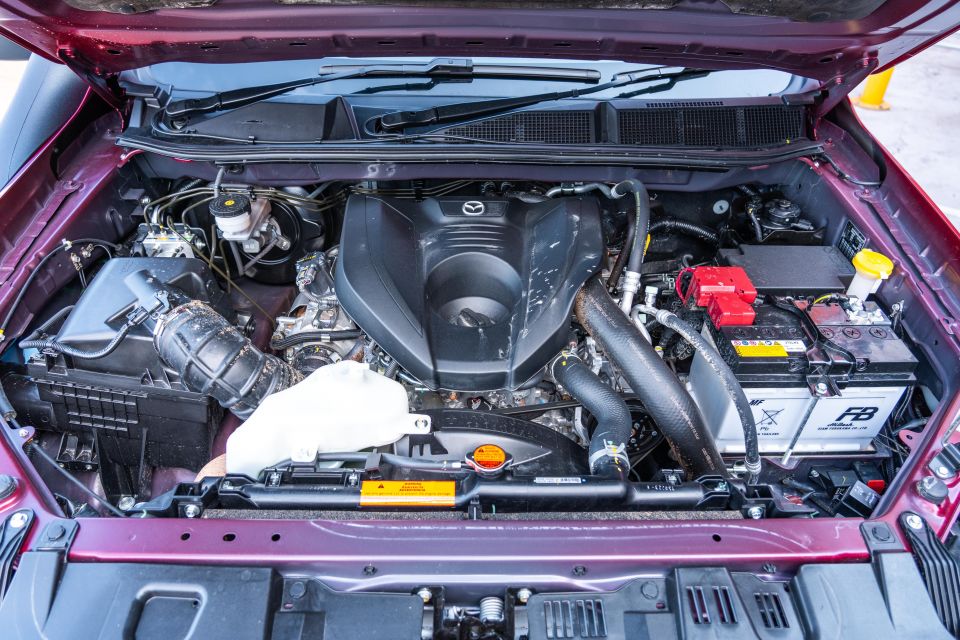
Claimed fuel consumption is 8.0L/100km which gives a range north of 900km from the 76L tank, but in reality with the heavier add-ons, you’re unlikely to match this.
Mazda claims an equal-class-leading 3500kg towing capacity, but not with a full payload. We returned a 0-100km/h time of 11.5 seconds.
To see how the Mazda BT-50 compares with its rivals, use our comparison tool.
The new BP-51 nitrogen-filled internal bypass shocks are position-sensitive and allow you adjust compression and rebound by hand. These ones are tailored for typical load weights up to 300kg, aiding ride comfort and control.
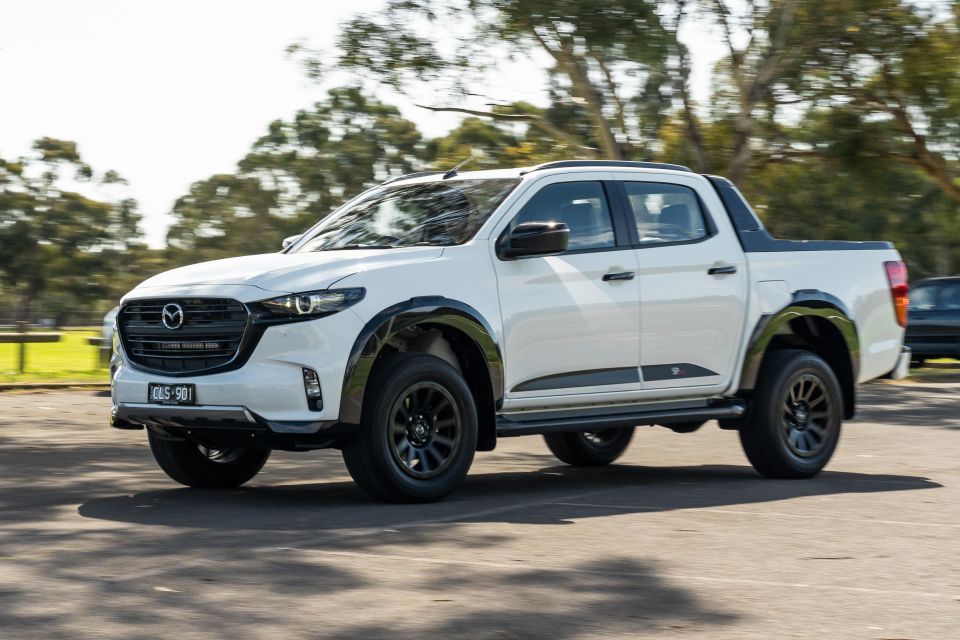
While ARB does its own testing here, Mazda Australia claims to have done its own calibration for the BT-50 with the off-the-shelf kit, so it’s ideally suited to the coil (front) and leaf (rear) springs.
The BT-50 already rides and handles relatively well, controlling the rear end over uneven surfaces and giving decent bump absorption.
But the upgraded suspension makes it feel smoother over corrugations and better controls compression when taking into account the added mass.
As well as offering excellent comfort and control over rough surfaces, the BT-50 has super-light electric power steering, making it quite accessible.
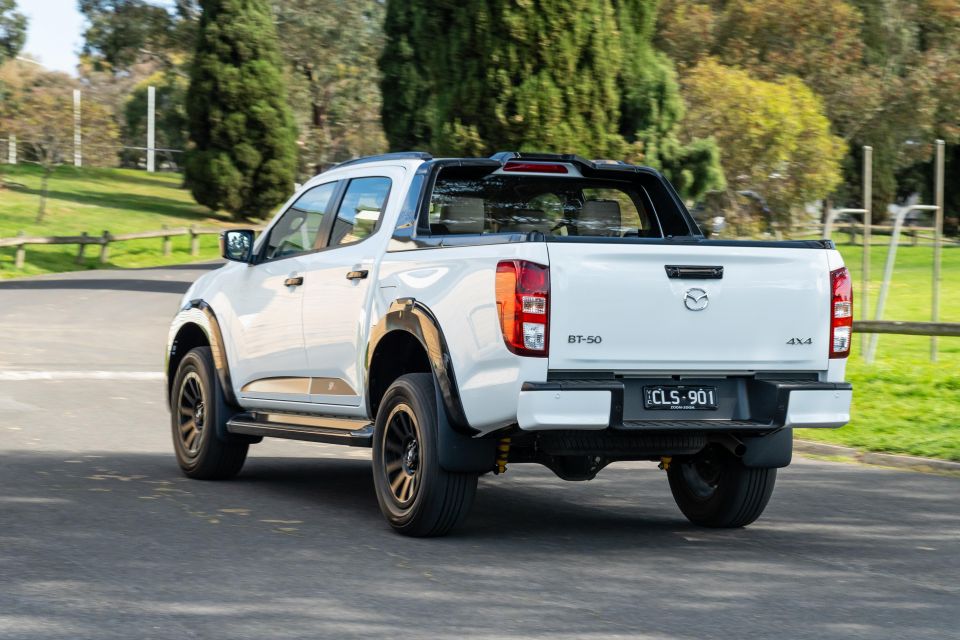
I won’t go so far as to say the BT-50 Thunder Pro becomes some sort of Ranger Raptor competitor, and it’s an expensive upgrade, but the BP-51s have pedigree and make the Mazda a better daily driver, towing vehicle and off-roader.
The 3.0-litre diesel doesn’t lead the segment when it comes to refinement, although, it’s certainly not as coarse or clattery as the engines used in older-generation pickups.
While its outputs of 140kW and 450Nm aren’t massive on paper, it’s certainly punchier by the seat of the pants than one rival with the same on-paper outputs: the Nissan Navara.
In multiple tests we’ve found it a match for the 2.8-litre Toyota HiLux with a VBox, if not Ford’s benchmark V6 Ranger, when it comes to punch off the mark and rolling acceleration.

It never feels slow and will even chirp the rear tyres at times when unladen.
While the Aisin transmission only has six gears, they’re well-spaced and the driveline creates good speed-retaining downhill engine-braking by dropping a cog with decisiveness.
It’s also very efficient. Over a few hundred kilometres of driving on both highways and over suburban roads it averaged 8.9L/100km, even with the heavier front bar.
The steel sports bar is mostly for show, but said steel front bar isn’t and the Lightforce LED driving lights can illuminate at 1 lux for a distance of more than 1.1km ahead of the vehicle.
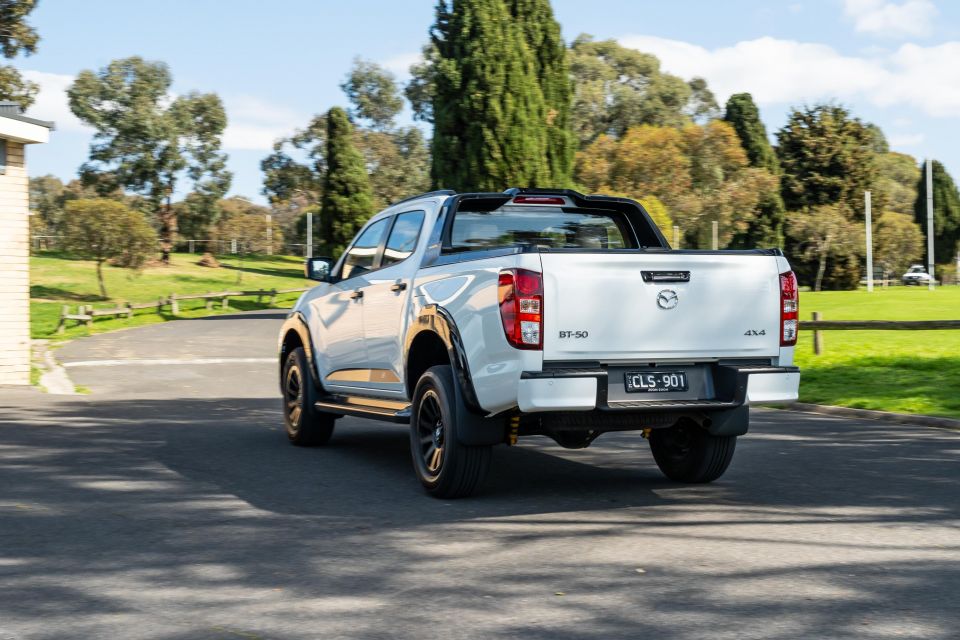
In terms of payload, Mazda claims 887kg for the Thunder based on its 2213kg kerb weight and 3100kg GVM. Mazda doesn’t separately advertise the Thunder Pro’s figures, but its own payload calculator claims the BP-51s shocks and springs add 85kg to the vehicle mass.
If you plan on towing a caravan, for instance, note that while the upgraded suspension is an advisable update, the BT-50’s weight limits need to be considered. Its 5950kg gross combination mass (GCM) means you can tow at maximum 2850kg if you’re also at payload.
One function the BT-50 does lack is full-time 4WD, instead running as a rear-wheel drive on tarmac and offering low- and high-range (50:50) 4×4 driving modes in the rough stuff, with a rear locking diff to help out over rugged terrain.
Those suspension modifications give you a little more flexibility, for example if you’re on a beach with lower tyre pressures you might want to stiffen the shocks.
MORE: Mazda BT-50 Thunder off-road review
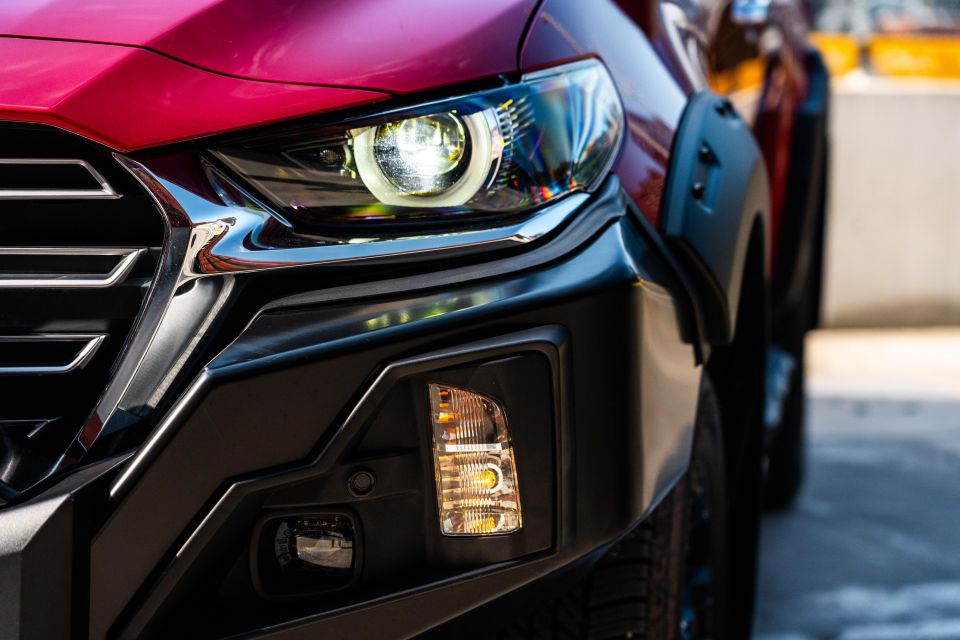

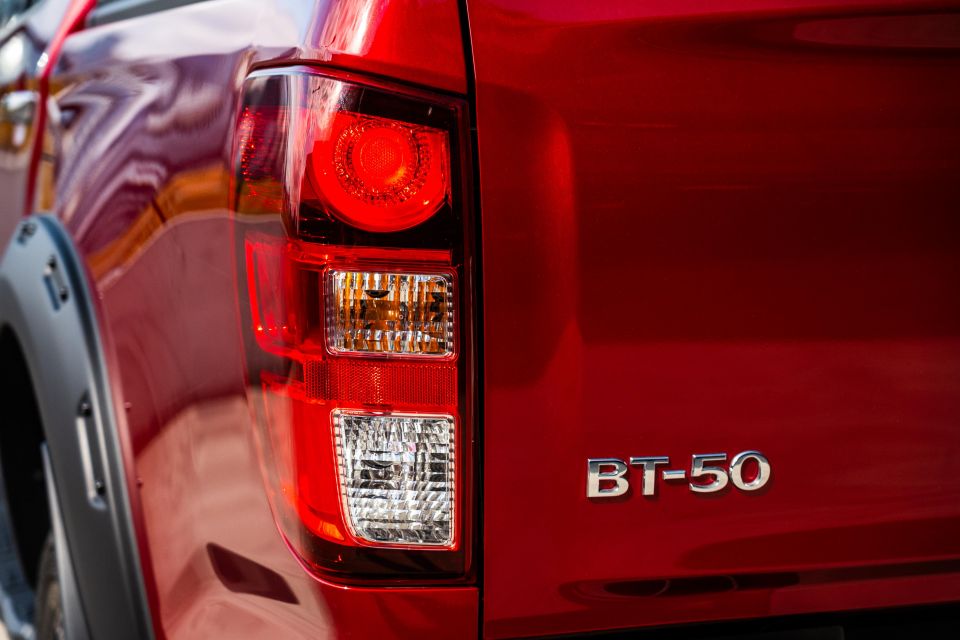

BT-50 Thunder highlights:
Thunder Pro adds:
The BT-50 carries a five-star ANCAP safety rating based on 2022 testing.

It managed scores of 86 per cent for adult occupant protection, 89 per cent for child occupant protection, 67 per cent for vulnerable road user protection, and 84 per cent for safety assist.
Standard safety features include:
Mazda provides a five-year, unlimited kilometre warranty.
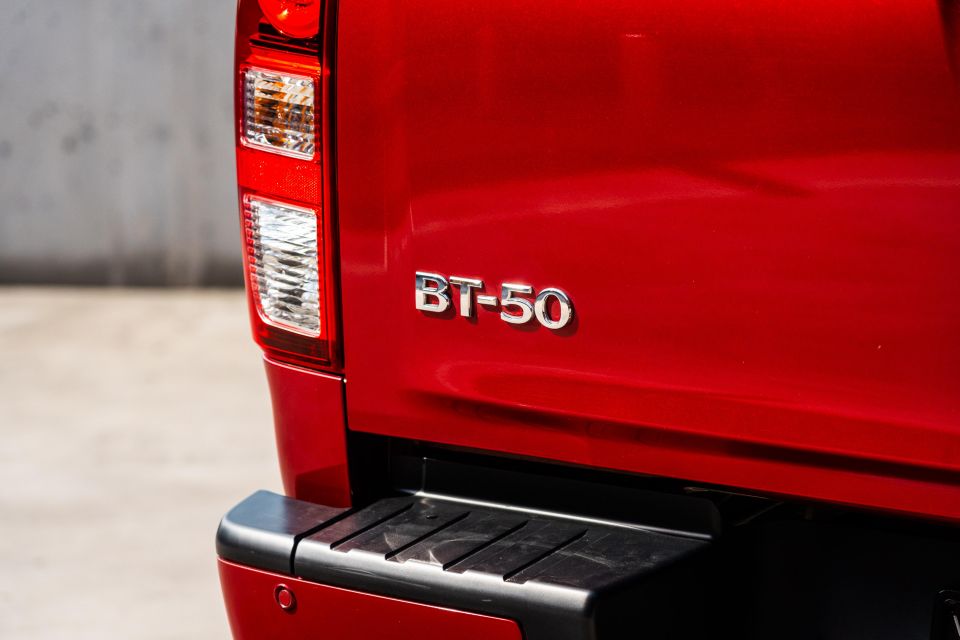
Where expert car reviews meet expert car buying – CarExpert gives you trusted advice, personalised service and real savings on your next new car.
Service intervals are every 12 months or 15,000km, with prices capped at: $449, $416, $713, $531, $334, $795 and $467 for the first seven visits. The cost-per-visit is about the same as the mechanically identical D-Max, reassuringly.
These service intervals match most competitors aside from the HiLux which soldiers on with six-monthly visits required.
Buy your new car without the stress. It's fast, simple and completely free.

Great service from Travis and team, second time I have used this business would not hesitate to recommend them to anyone
Craig C.
Purchased a Ford Ranger in Sunshine Coast, QLD
CarExpert helped Craig save $7,224 on his Ford Ranger, now let us save you on your next new car.
Get your BEST priceThe BT-50’s price is frankly getting up there, but launching a pre-packaged Thunder Pro version with uprated suspension, lighting and a snorkel gives Mazda dealers something flashy for the showroom floor.
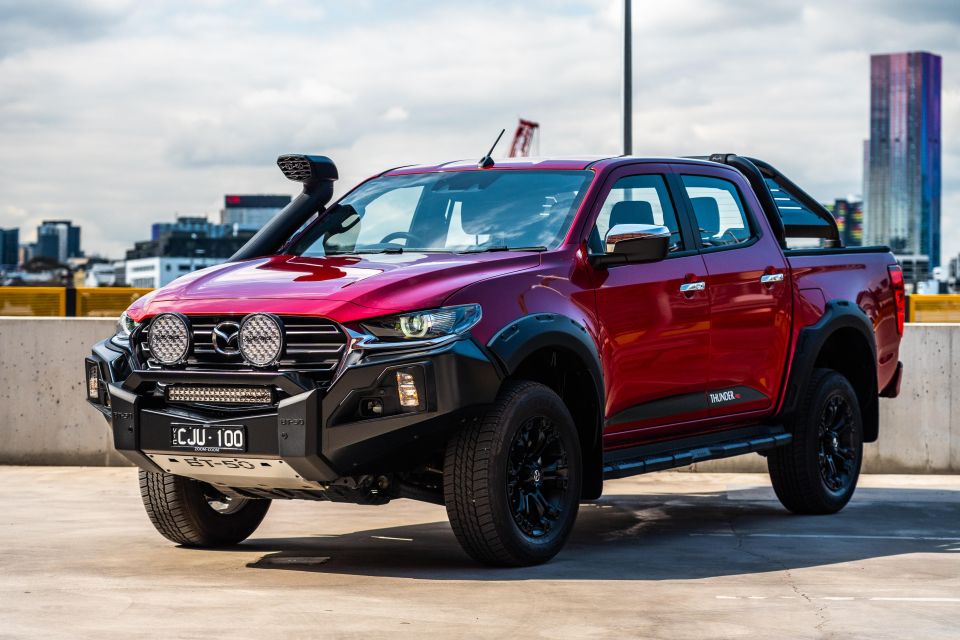
It’s a solid truck, shaded now by the Ranger in terms of interior technologies and engine performance, but dependable and comfortable.
Be aware that you can pick up a lower grade BT-50 variant and fit the same suspension upgrades, saving yourself some money for forgoing some luxuries.
Click the images for the full gallery
BUY: Mazda BT-50 MORE: Everything Mazda BT-50
Where expert car reviews meet expert car buying – CarExpert gives you trusted advice, personalised service and real savings on your next new car.


Max Davies
23 Days Ago
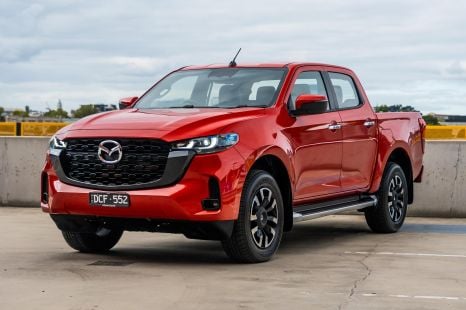

Josh Nevett
15 Days Ago
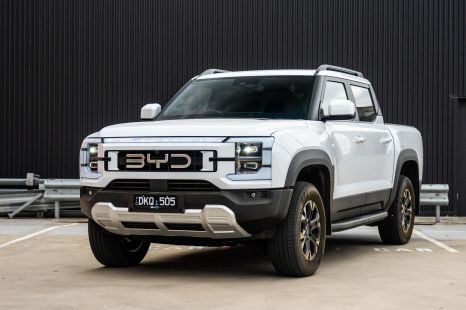

William Stopford
14 Days Ago
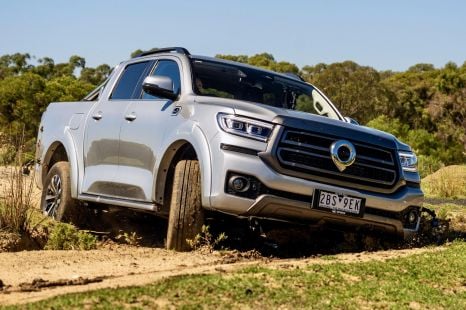

Max Davies
9 Days Ago
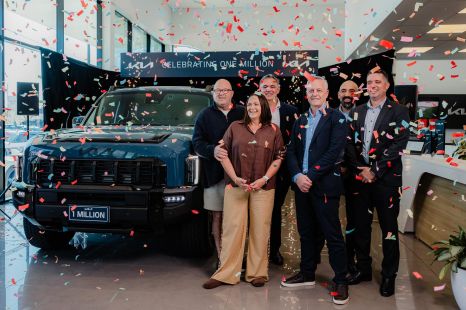

James Wong
8 Days Ago
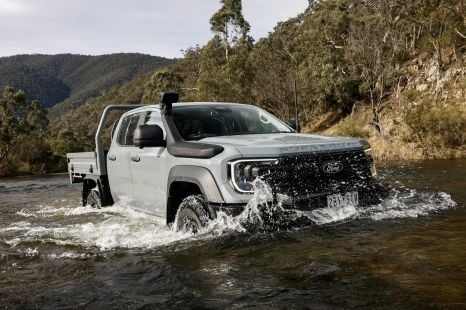

Max Davies
8 Days Ago